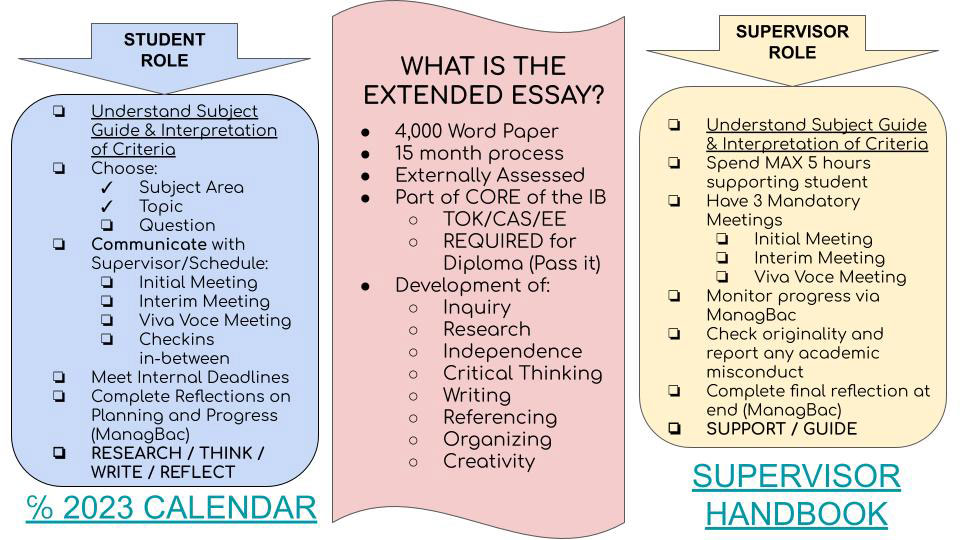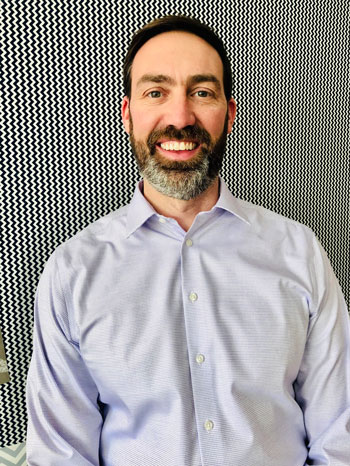East Grand Rapids—The titles of the 28 writings that make up this year’s extended essays project as part of the International Baccalaureate Programme at East Grand Rapids High School read like global think-tank presentations on some of the world’s most pressing problems.
There’s “A Jeweler’s Scale: The Dynamic Rhetoric of the Supreme Court” in the language and literature category, by senior Nic Carlson.
“An Evaluation of the Effectiveness of Solitary Confinement within the Prison Systems” by senior Kelly Couvreur is part of the psychology category.
And in world studies, there is “Modern geopolitical implications on previous treaties and agreements in protected areas in northern Canada.”
That last one is by Max Bruce, and he and his fellow essay writers will be featured at an open-to-the-public event on Feb. 15 from 7-8:30 p.m. in the high school’s science wing, where they will present short synopses of what they found in the process of their paper-writing and take questions.
The question Max tried to address in his essay is to what extent might emerging fossil fuel scarcity impact longstanding agreements between the indigenous peoples of Nunavut and the Canadian government.
“I initially started researching basic information, such as the treaty documents between the Inuit of Nunavut – (a land area of 725,000 square-miles that is home to just 40,000 people, mostly Inuit) – and the Canadian government,” Max explained. “Later, I began to look for more detailed accounts and information regarding Nunavut, such as documents produced by Nunavut’s Department of Economic Development and Transportation.”

Months-Long, Multiple-Draft Project
At the start of the months-long and multiple-draft project, Max said, he knew very little about the territory of Nunavut from a historical perspective.
“Although I had researched arctic history during the Middle Ages a few years ago for my own enjoyment, I knew almost nothing about the modern history of the territory.”
From a geographical perspective, though, he knew a lot more.
“Geopolitics has always been among my favorite topics,” he said.
What Max mostly looked at in his essay was whether oil scarcity would affect the indigenous inhabitants in poorly developed areas of countries.
“More broadly,” he said, “my question was whether governments would exploit less developed areas for oil, and thus impact the lives of the people living there. I answered this by researching historical trends and the geographical patterns seen globally and in the territory of Nunavut.”
What he found was that while the Canadian government appears to respect the way of life, treaty rights and the consent of the indigenous Inuit, it would be quite difficult for this pattern to be exported to other countries with similar situations.
Students Paired with Faculty Guides
The extended essay is a requirement for East’s International Baccalaureate (IB) Diploma Programme, and is a meticulously researched 4,000 words or fewer (Max’s was 3,973) on a topic of the student’s choosing.
The process begins during the student’s junior year, sees them paired with a faculty adviser and takes almost 18 months from start to finish.
Max was paired with Pierre Sirois, who has been at East for 20 years and currently teaches world history and U.S. government. A native of Cape Breton Island, Nova Scotia, Sirois was able to connect Max to contacts in the Canadian government and also encouraged him to reach out to Nunavut territory administrators.

“With an extended essay, the students design their area of study, and my responsibility is to direct them in a way that will lead them to success,” said Sirois. “This project requires the student to do the work. We encourage and redirect if necessary. As a result, students grow a lot during this process.”
Jeff Webb agrees. He is the IB diploma programme coordinator for East and teaches IB biology – higher level.
He said that the essays are a required component toward receiving the IB Diploma at the conclusion of students’ two years in the program. Once they are completed they are submitted to the International Baccalaureate Programme for grading, and factors into each student’s overall grade toward their IB diploma.
Beyond the grade, Webb said, the project has other immense benefits.
“Students learn how to engage in proper academic research,” he said. “They also learn the proper framework for writing a paper of this magnitude, along with time management skills.”
He added that East graduates consistently report that the IB programme gave them an extra measure of confidence entering college.

Academic Skills & Life Skills
Tad VandenBrink is in his eighth year at East and previously taught in both Spain and Honduras. He now teaches United States history, IB history of the Americas and IB world history, and oversees the extended essay project.
He said he appreciates the IB focus on global viewpoints and its interdisciplinary connections – the latter of which, he added, helps develop students who can go beyond simply “doing school.”
And the essay project, he said, allows students to explore what it might be like to work in a particular field of interest and do what those professionals do.
“In the process, they not only have to apply and refine academic skills like research and writing, but life skills like working with adults and obtaining feedback, time management and organization.”
VandenBrink noted that the upcoming presentation night is also a graded opportunity for East’s IB students and a chance to celebrate.
“Upon completing any major research, it is common to find opportunities to share the work with others and to also celebrate the accomplishment of doing original research,” he said.
Feb. 15 and Beyond
Max is eager to help people understand his work and excited for what the IB programme will mean for his next steps after high school.
During their presentations, students will explain how and why they chose their topic, the answer to their essay’s original question, next steps they would take were they to continue their research, and the challenges and successes they experienced during the process. Each presentation will be video recorded and shared in March with the community via East’s monthly newsletter.
“Writing my essay definitely bolstered my interest in geopolitics and the interactions of governments and peoples,” said Max, who hopes to pursue an education in petroleum or chemical engineering, and a minor in political science.









